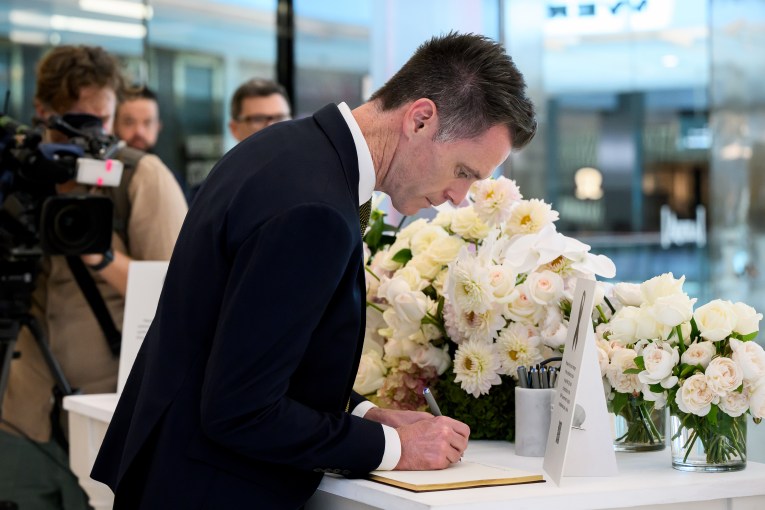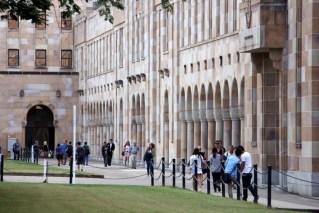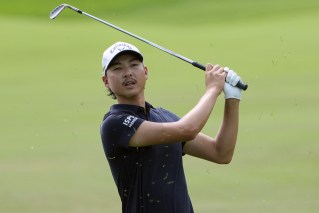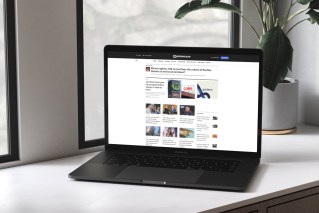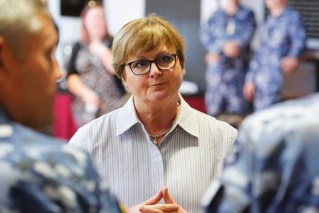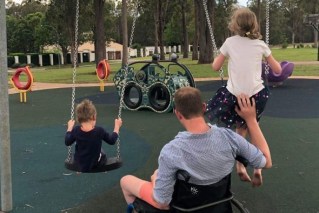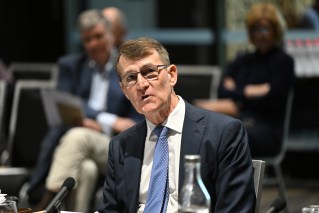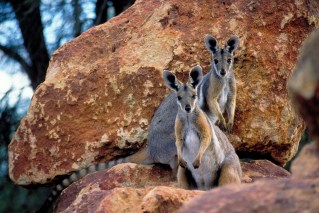How Queensland tested its way to good health through ‘battleground’ of new strain
Greater Brisbane has secured its freedom from health restrictions. Testing at higher levels, and through new methods, may be a game changer.
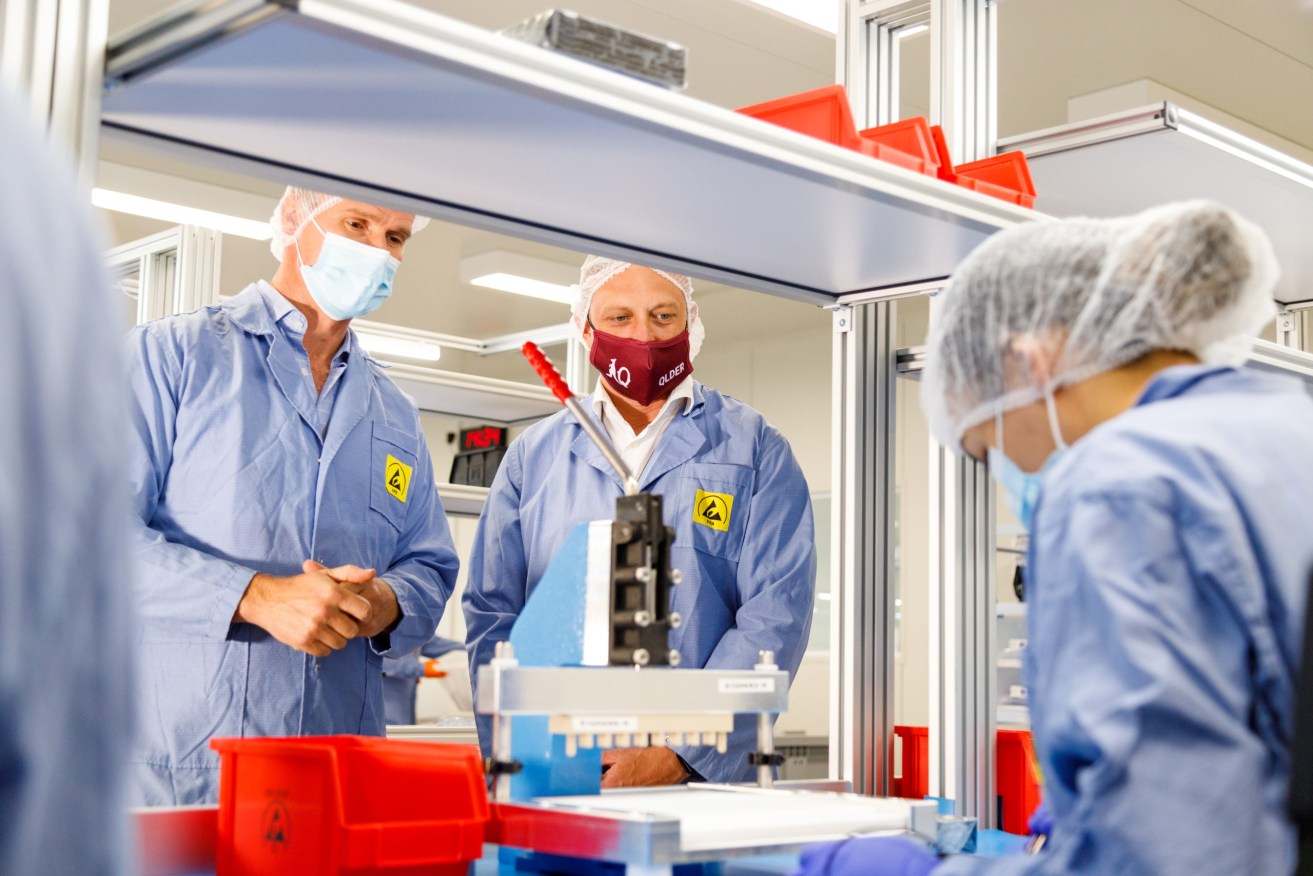
Deputy Premier and former health minister Steven Miles (centre) during a visit to Ellume this week.
Restrictions in Greater Brisbane will be eased at 1am Friday, allowing for larger gatherings, fewer masks, and pre-Christmas levels of freedom.
Premier Annastacia Palaszczuk said the UK strain of COVID-19 had overwhelmed hospitals in the UK but Queensland had risen to the challenge.
“Brisbane was Australia’s first battleground for this new strain,” the Premier said.
“A short, sharp shutdown was successful in keeping the movement of people and the virus to a minimum.”
From tomorrow in Greater Brisbane, weddings will again be allowed 200 guests, people will be able to stand, drink and even dance in licensed premises. Masks will no longer be mandatory in indoor public places, however, they are still recommended in crowded spaces.
Sydney will remain a hotspot until next week, at least, leaving some travel restrictions and quarantine requirements in place. Reducing the cap on overseas arrivals has seen the number of people in hotel quarantine in Queensland fall by around 600.
The Australian Border Force on Tuesday deported a French national after the visa-holder was involved in an illegal New Year rave near Gympie and not following the COVID-19 rules.
Chief Health Officer Jeannette Young today praised Queenslanders for heeding the warnings about COVID-19 and turning out for testing in record numbers.
Young said she had not seen such a willing and rapid response from the public in her career. An outbreak of the more contagious UK strain of COVID-19 in a quarantine hotel led to a lockdown, widespread use of masks, and thousands turning out to be tested.
“It’s astounding,” Young said.
In the last 24 hours, even as the Hotel Grand Chancellor outbreak was all but over, 7410 tests were done in Queensland, giving Young the confidence to recommend restrictions ease tomorrow.
Data obtained by InQueensland shows the state has set new testing records in January, a year after the first infections were detected on the Gold Coast.
Already this month, 231,585 tests have been done in Queensland, catching up to the August 2020 record of 359,945, set at a time when southeast Queensland had several outbreaks and more cases than now. January has brought the most consecutive days with more than 10,000 tests – 11 – although the highest number in a single day was still below the 21,653 record set in August.
As two pathology experts wrote this week, Australia is set to perform its 12 millionth COVID-19 test this week, with the equivalent of nearly half the population having been tested over the past year.
“Australia’s current position of having effectively suppressed the virus to intermittent outbreaks owes much to the year-long dedication and ingenuity of 35,000 pathologists, medical scientists, lab technicians, couriers, phlebotomists and ancillary personnel, who’ve worked tirelessly every day to keep us safe,” wrote Royal College of Pathologists of Australasia chief executive Debra Graves and vice president Lawrie Bott.
Queensland has also been at the forefront of innovation, with Brisbane company Ellume sending its first shipment of at-home tests to the United States this week, and another company, AnteoTech, receiving $1.4 million in State Government funding for its point-of-care rapid tests. This sets the scene for an era where vaccines, and rapid tests, change the nature of the fight against COVID-19.
“AnteoTech is another Queensland company rolling up its sleeves to fight the global pandemic and employing hundreds of Queenslanders to do so,” Deputy Premier and former health minister Steven Miles said, having visited Ellume yesterday.
Young said the new tests – “a fantastic piece of work” – would be of great use in countries with a lot of cases, and wanting to detect the majority of cases. Queensland, she said, would continue to use more sensitive conventional tests, in an effort to pick up the first case in a potential outbreak.
“We don’t have any capacity problems, we can run through enormous numbers of tests, a lot more tests than we’ve been doing,” Young said.
Young reminded Queenslanders to get tested if they develop symptoms or have had any risk of developing COVID-19.
Palaszczuk is set to meet with Prime Minister Scott Morrison ahead of a National Cabinet meeting tomorrow. She has floated the idea of mining camps being used to house returning travellers and the staff needed to keep them isolated.
